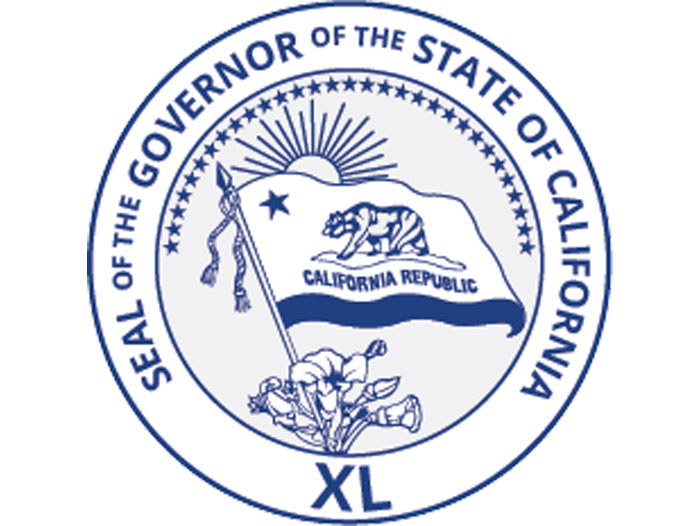Governor Newsom Issues Executive Order to Crack Down on Ultra-Processed Foods and Further Investigate Food Dyes
January 10, 2025 | 5 min to read
Governor Gavin Newsom has issued an executive order aimed at combating the harms of ultra-processed foods in California. This initiative seeks to enhance access to affordable, healthy options, investigate synthetic food dyes, and support healthier school meals. Newsom emphasized the importance of nutrition in promoting public health and reducing chronic illnesses. The executive order directs state agencies to recommend actions related to food safety and nutrition, further establishing California as a leader in health standards.

Governor Newsom issued an executive order directing state agencies to recommend potential actions to limit the harms associated with “ultra-processed foods” and food ingredients that pose a health risk to individuals.
Sacramento, California – Building on the nation-leading nutrition and health standards established in California, Governor Gavin Newsom issued an executive order to continue investigating the adverse health effects of synthetic food dyes and increase access to affordable, healthy foods. “Ultra-processed foods” are known to pose a health risk to individuals, and today’s efforts are designed to support affordable, healthy living and reduce the growing impact of chronic illnesses on Californians.
“The food we eat shouldn’t make us sick with disease or lead to lifelong consequences,” said Governor Newsom. “California has been a leader for years in creating healthy and delicious school meals, and removing harmful ingredients and chemicals from food. We’re going to work with the industry, consumers and experts to crack down on ultra-processed foods, and create a healthier future for every Californian.”
Executive Order
The executive order orders specific state entities to:
- Provide recommendations to the Governor’s Office regarding potential action to limit the harms associated with “ultra-processed foods” and food ingredients that pose a health risk to individuals.
- Continue investigating the adverse health impacts of synthetic food dyes.
- Recommend actions to reduce the purchase of soda, candy, other ultra-processed foods and/or foods with synthetic food dye or other additives.
- Investigate the feasibility of requiring Medi-Cal Managed Care plans and California hospitals to use their Community Investment dollars and Community Benefit funds to enhance access to fresh, healthy foods, mitigate the impacts of “food deserts,” and otherwise promote public health at the local level.
- Identify areas where California may adopt higher standards for healthy school meals than national standards.
- Explore developing new standards and partnerships to further protect and expand universal school food programs.
“Through today’s executive order, we’re making a decisive and transformative commitment to further California’s work to prioritize health and nutrition as fundamental building blocks for thriving communities,” said Jennifer Siebel Newsom. “By connecting the dots between whole food, mental wellness, and strong cognition, we are creating an environment where every child has the opportunity to realize their full potential. This is a powerful move towards health, equity, and a California for ALL Kids.”
Why This Matters
The new 2025 Dietary Guidelines Advisory Committee Advisory Report to the federal Secretaries of Health and Human Services and Agriculture found that 73 percent of U.S. adults 20 years and older are overweight or obese and 38 percent of children and youth between 12 and 19 years old are prediabetic. The National Institute of Health and the Centers for Disease Control & Prevention has also identified the link between healthy eating and lowering an individual’s risk for heart disease, stroke, diabetes, and other chronic health conditions.
Leading the Way on School Nutrition
Children eat the majority of their meals at school, and research shows that healthy school meals result in better attendance, higher academic achievement and improved health overall, including lowering the instance of chronic disease in the long term. California standards already exceed federal rules for food safety in schools, ensuring children are consuming fewer amounts of added sugars, sodium, and more fruits, vegetables, and whole grains.
California was the first state to implement a statewide Universal Meals Program for schoolchildren, providing all public TK-12 students access to two free meals per school day. In 2023, California also became the first state to codify President Biden’s new federal guidelines on school nutrition standards to reduce sugar and salt in school meals, and established a process for California to maintain those standards should a different federal Administration enact lower the standards.
First Partner Jennifer Siebel Newsom also championed efforts to develop the innovative California Farm to School initiative. California Farm to School works in tandem with universal school meals to ensure California students have access to two free school meals that are locally-sourced, delicious, and nutritious. California also participates in the federal SUN Bucks food program which ensures that children in families with low incomes have adequate nutrition while school is out for the summer.
Additionally, under Governor Newsom, California has:
- A long-standing ban on sodas on K-12 campuses;
- Restrictions on caffeine at any grade level, while federal standards allow caffeine in high schools;
- Required entrees sold on the same day or day after they appear on the menu to meet standards for calories, total fat, and trans fat, while federal standards allow these to be sold without meeting any nutrition standards; and,
- Proposed a sugar limit on non-dairy milk, which is anticipated to become effective in 2025, while federal standards do not have a sugar limit.
2024 legislative actions
- AB 2316 by Assemblymember Jesse Gabriel (D-Encino): Prohibits California schools from serving and selling foods containing synthetic food dye additives that have been linked to health harms in children, including cancer, damage to the immune system, neurobehavioral issues, and hyperactivity.
- AB 660 by Assemblymember Jacqui Irwin (D-Thousand Oaks): Standardizes quality and safety date labels on food products to create clarity and consistency and better informs consumers in order to significantly reduce food waste in the state.
- AB 418 by Assemblymember Jesse Gabriel (D-Encino): Prohibits the manufacture, sale, or distribution of any food product in California containing Red Dye No. 3, Titanium Dioxide, Potassium Bromate, Brominated Vegetable Oil, or Propyl Paraben.
- AB 518 by Assemblymember Buffy Wicks (D-Oakland): Improves data collection to increase enrollment in the CalFresh program.
- AB 1830 by Assemblymember Dr. Joaquin Arambula (D-Fresno): Requires corn masa and corn masa products to be fortified with folic acid to support women’s health during pregnancy;
- AB 2033 Assemblymember Eloise Gómez Reyes (D-Colton): Requires the California Community Colleges and California State University campuses, and requests University of California campuses, to apply for at least one store that sells food on campuses to accept SNAP/EBT cards; and
- AB 2786 by Assemblymember Mia Bonta (D-Oakland): Establishes a new category of “certified mobile farmer’s markets” and requires registration of these markets with both the California Department of Food and Agriculture (CDFA) and the California Department of Public Health (CDPH).
42 of 82 article in DeliBusiness Winter 2024-2025


